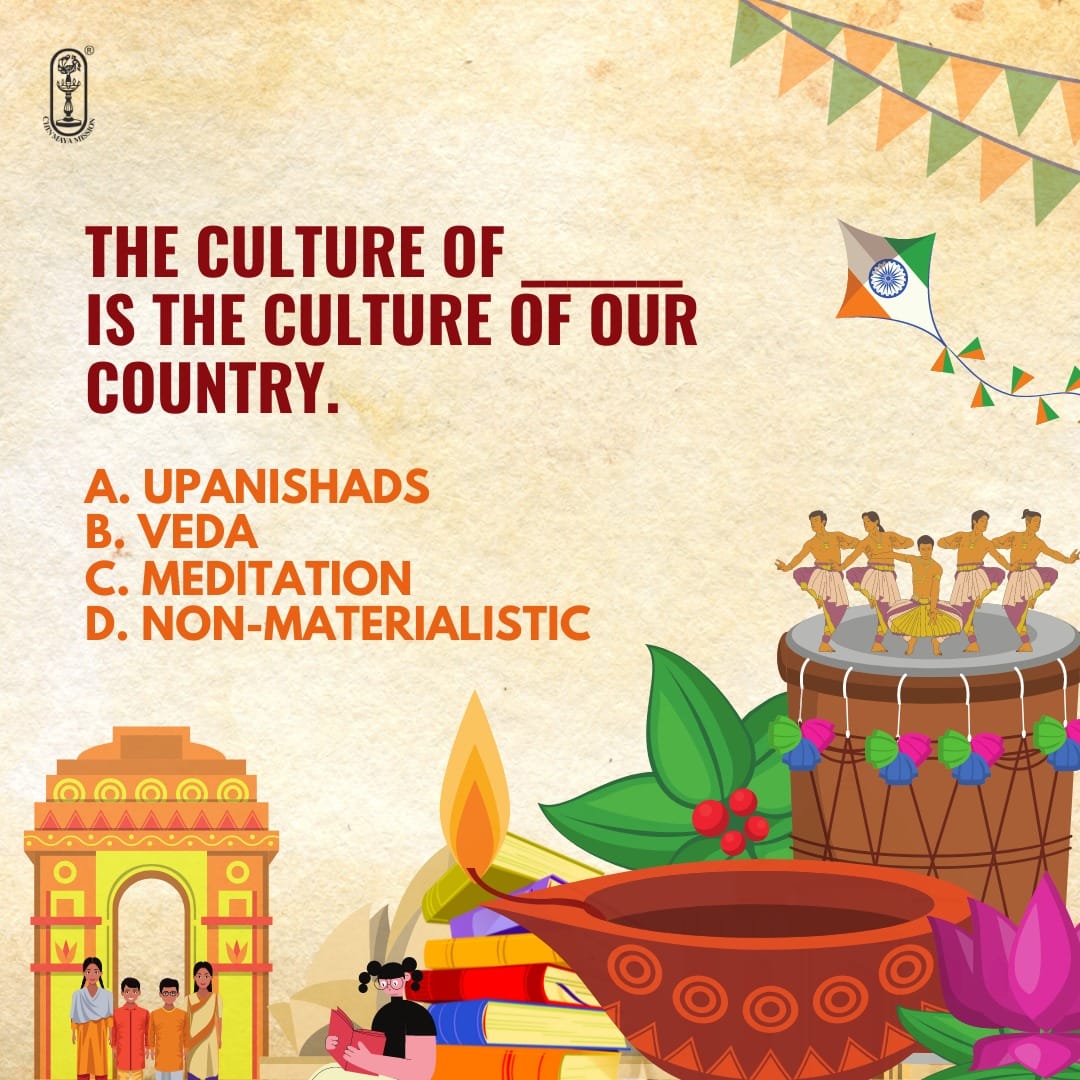The Essence of Dharmam (Dharma) - 10. Swami Krishnananda.
=========================================================================
=============================================================================
Saturday, January 08, 2022.6:00.AM.
(Spoken on February 11th, 1973)
Post-10.
==============================================================================
But higher than that is the realm of pure thought. That is Pitri-loka. The beauty of literature, for example, is higher than the beauty of music. When we read Shakespeare we will be simply transported. We will not like to hear music at that time because the mind is in a still higher realm. Or read some passages from the classics of Tamil scholars. I am not a Tamil scholar, but I have heard of the greatness of their masterpieces. Only those who know Tamil will appreciate it. Wonders are revealed in treasures of Tamil literature. Literature is higher than music, while music is higher than the pleasure of physical contact.
Higher than the pleasure of pure thought and literary beauty is the pleasure or the delight of knowledge, Brihaspati-loka. Higher than that is the pleasure or delight of spirituality. That is divinity, godliness. So ultimately the Upanishad tells us that spirituality is the highest happiness. Lower than that is knowledge. Lower than that is literature and learning. Lower than that is music and art. Lower than that is the happiness of physical contact.
So dharma is connected with this tremendous mystery of the gradation of happiness and reality. Gradation of happiness is gradation of reality; the higher the reality, the greater is the happiness. Reality is bliss, sat is ananda. Such being the case, dharma is an inward growth into the nature of reality. It is not performance of an external action. Dharma is, therefore, an awakening of oneself into the consciousness of a more intimate contact with being.
Now I come to another aspect of the subject. What is this being? Why do we say ‘being’? Because the universe is being. It is not becoming. Western philosophers and psychologists are wont to say that the universe is becoming, but Indian metaphysics tell us that it is being. If it is becoming, it should be a process. Hegel and Whitehead are the protagonists of this theory of process in the Western world. But what do they mean by a process? It is a movement, but a movement of what? Of the universe. Towards what? Movement is inconceivable without space, but space is a part of the cosmos, so we come a cropper. How can we conceive of a universe of process unless there is space intervening between the parts of the process? And when the space also is a part of the process itself, how can there be a process? So the universe is not process; it is existence. When space and process combine together, we have being of the universe and not a becoming of the universe.
So dharma is growth of consciousness into intimacy with the being of the universe, and this being of the universe is God. What is called ‘the substance’ in the terms of Spinoza is also called the Absolute, or Reality, Brahman, Ishvara, or Jehovah. What we call God is nothing but this being of the cosmos behind the becoming of the process, and when we grow consciously into intimacy with this being of the universe, we grow in dharma, so the highest dharma is moksha. The highest dharma or duty of man would be to strive with every nerve of his being towards the realisation of moksha.
What is moksha? It is the liberation of the consciousness from the notion that it is outside the being of the universe. This is moksha. Moksha is, at the same time, freedom from bondage, contact with Reality, oneness with the universe, performance of one’s duty, and the realisation of the highest bliss. For us, moksha is everything. There is nothing except moksha that one can ask for.
Moksha is not a future attainment which will come to us tomorrow: “Today I will be a brahmachari, tomorrow a grihastha, the day after tomorrow a vanaprastha, the fourth day a sannyasi, and then I will think of moksha.” We have an idea that God is a future tense and a thing of the future, while He is eternal presence. He appears to be a future realisation on account of there being a concept of the gradation of reality. I am deliberately using the words ‘concept of gradation’ because reality by itself has no gradation. There are no degrees in reality. There are degrees only in the concept of reality.
So dharma, the duty of man, the subject with which I began speaking today, is that attitude of consciousness by which we gradually attune ourselves to the being of the cosmos. I have spoken sufficiently about what this being of the cosmos is. It is wonderful. Nothing can be more wonderful than that. And the Bhagavadgita is a grand masterpiece of text as a teaching on the nature of this reality.
To be continued ...
============================================












Comments